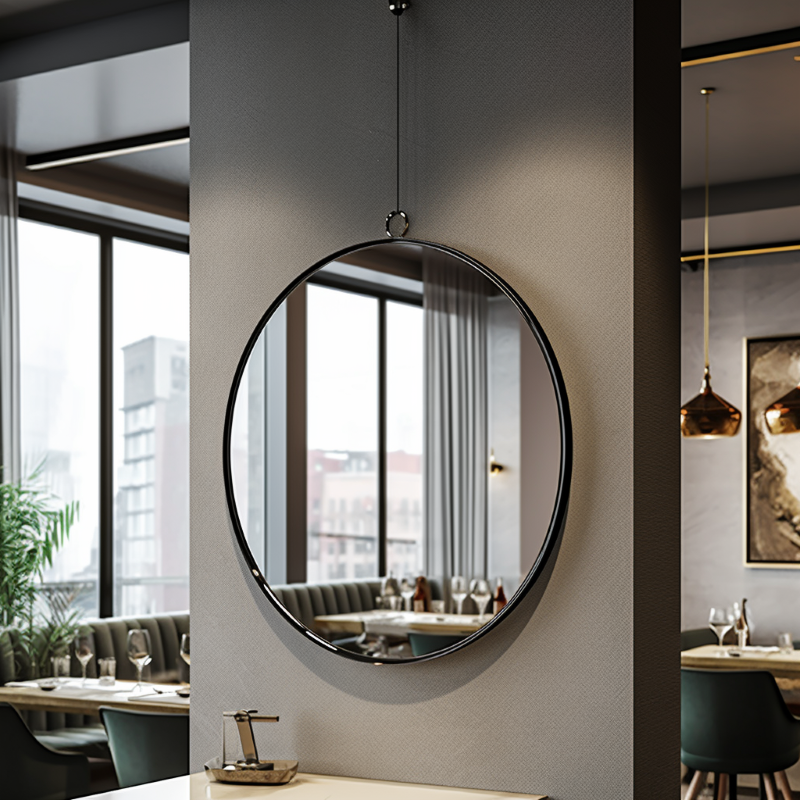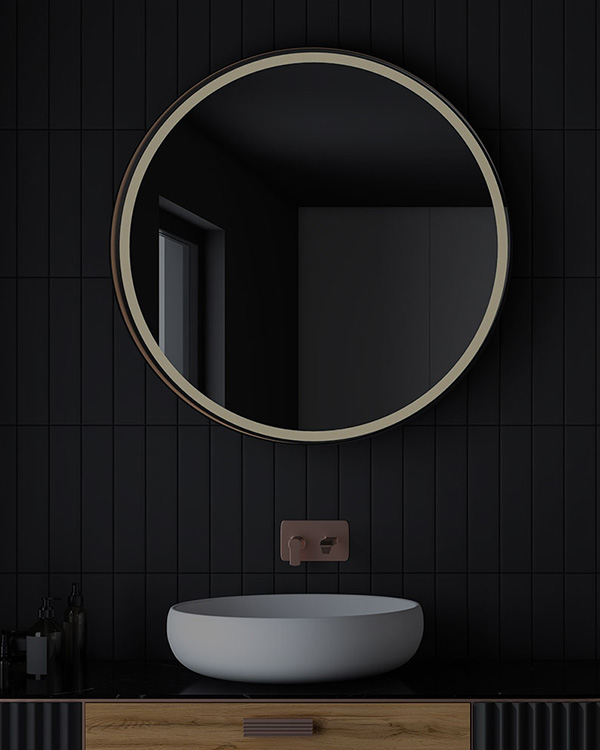





With the explosion of artificial intelligence applications in the world in recent years, we have also begun to focus on the development and application of (AI) in mirrors. The role of AI in the field of mirrors is mainly reflected in design, manufacturing, and related technologies.
Mirror design and customization: AI-based design tools can help customers and designers create customized mirror designs. These tools accept user input such as size, shape, and style preferences and then generate design options. AI can analyze interior design trends and customer preferences to suggest mirror designs and sizes that may be popular. AI can assist in rendering and visualizing the effects of mirror designs in specific environments, helping customers make informed choices.
Production and quality control: AI-based robotic systems can provide high-precision mirror glass cutting and shaping during the manufacturing process. AI can be used for quality control, checking mirrors for defects, ensuring they meet industry standards, and reducing waste during production. Machine learning algorithms can predict potential problems in mirror production, implementing proactive maintenance and reducing downtime.
Smart mirror: AI-empowered smart mirror with interactive functions. These mirrors can display information, provide personalized recommendations, and even have built-in voice assistants. Facial recognition and gesture recognition AI can be integrated into smart mirrors for user authentication and control of mirror functions. Smart mirrors can analyze user data to provide personalized health and beauty advice.
Anti-fog and self-cleaning mirrors: AI can control anti-fog technology in bathroom mirrors by monitoring humidity levels and activating heating elements as needed. Self-cleaning mirrors can use AI to schedule and initiate cleaning processes based on usage patterns and environmental conditions.
Augmented Reality (AR) and Virtual Reality (VR) Applications:AI plays a role in AR and VR applications in mirrors, which can simulate the effect of mirrors in different environments or enhance the user experience in virtual environments. Virtual try-on apps, often used in the fashion and makeup industries, use AI to simulate how products in a mirror will look in different environments.
Energy saving: AI algorithms can optimize the control of lighting systems and heating elements in smart mirrors to improve energy efficiency. AI-based sensors can detect the user's presence and adjust mirror lighting accordingly to save energy.
Customer insights and feedback: AI tools can analyze customer feedback and usage data to gain insights on mirror performance and user satisfaction. Manufacturers can use this information to improve product design and functionality.
Overall, AI promises to revolutionize mirror technology by making them more interactive, efficient, and more responsive to individual needs. As AI technology continues to advance, we can expect more innovative applications and improvements in mirror design, manufacturing, and functionality.


